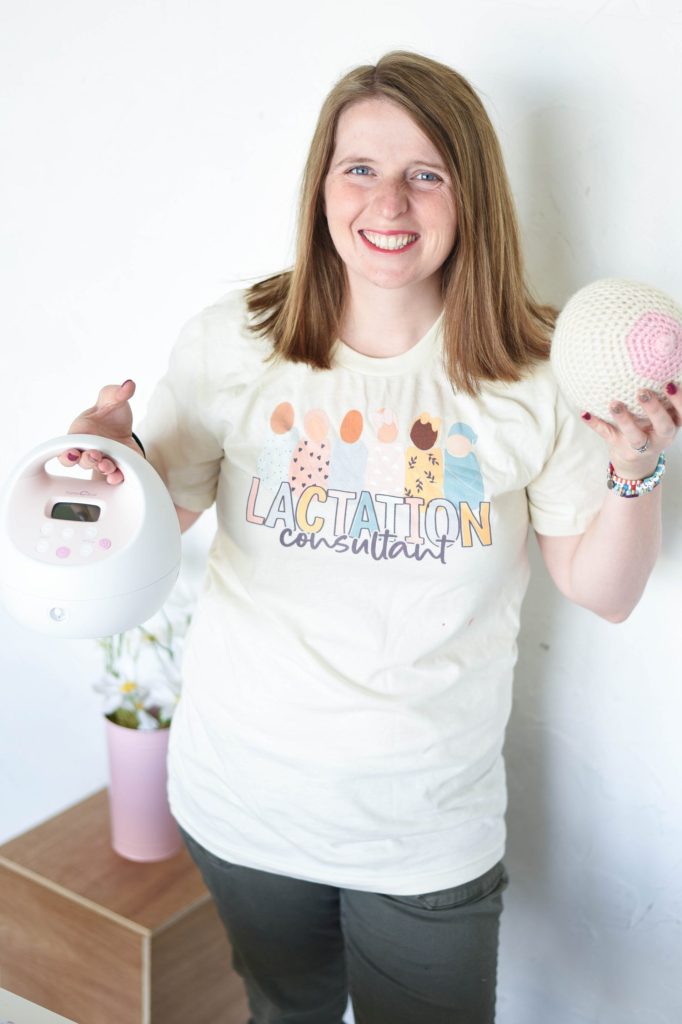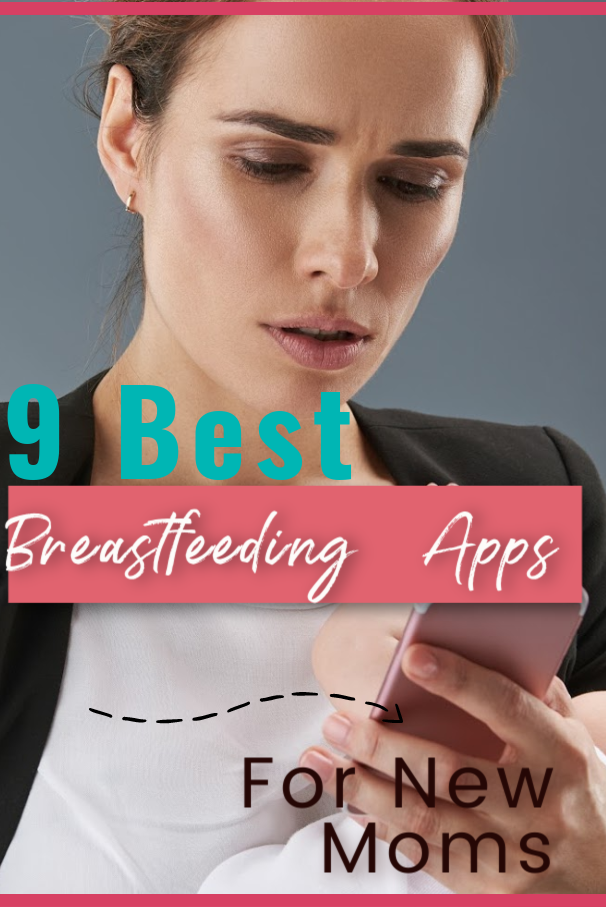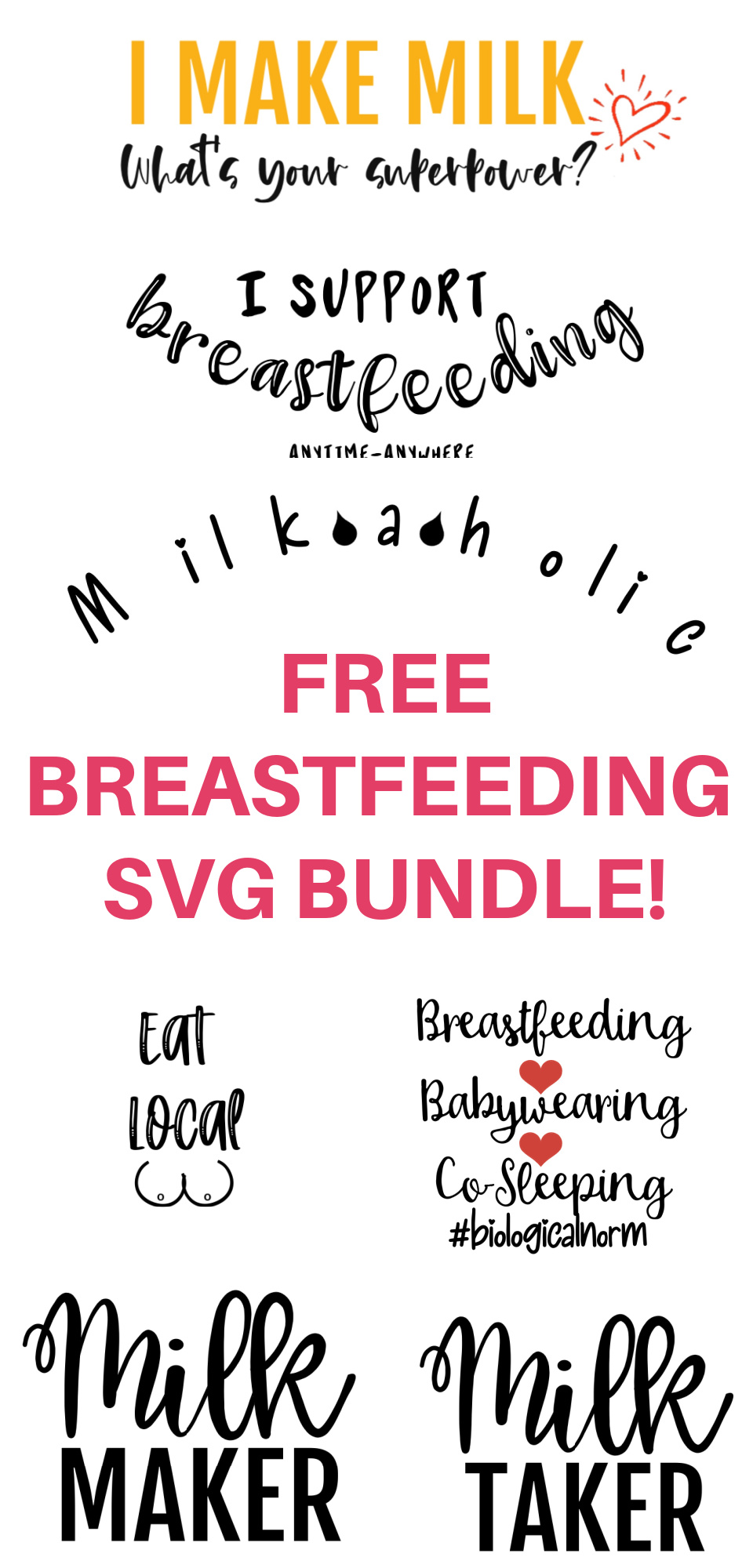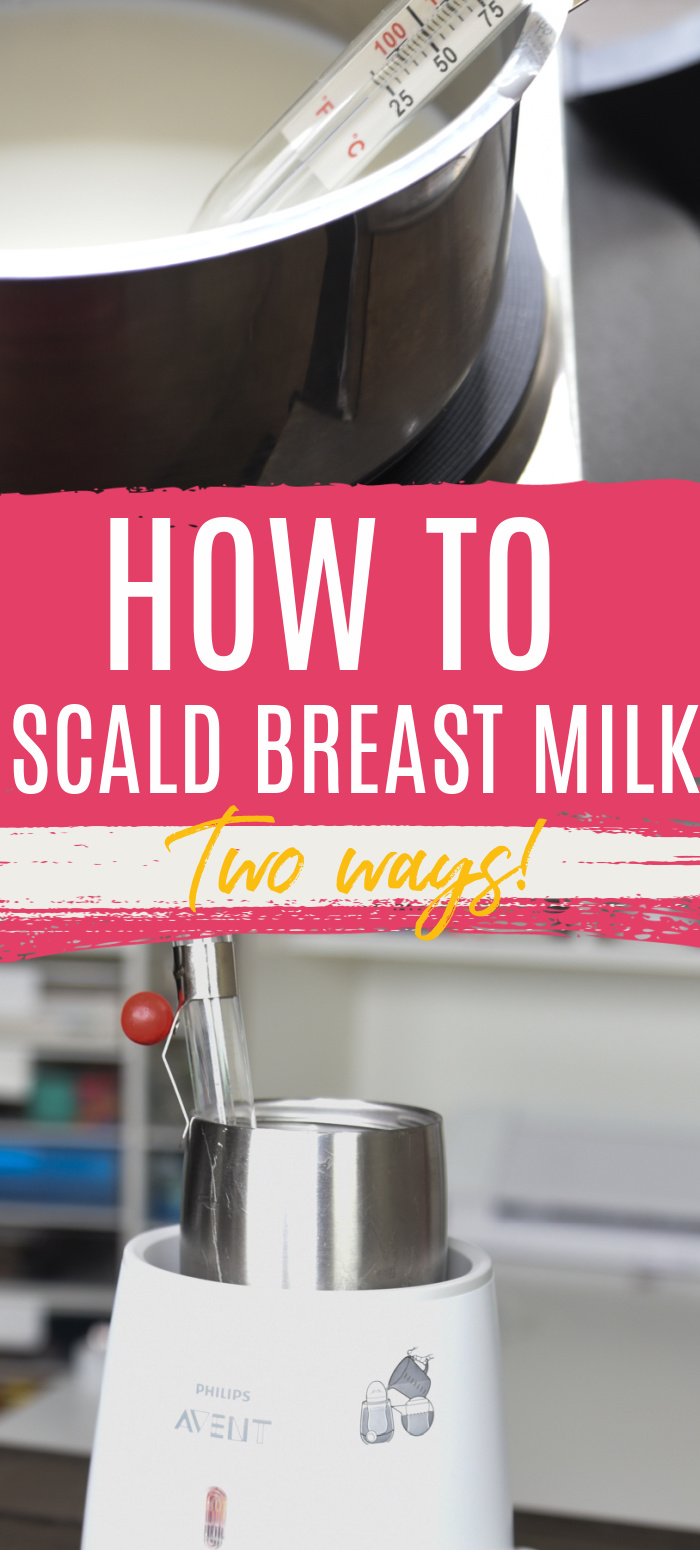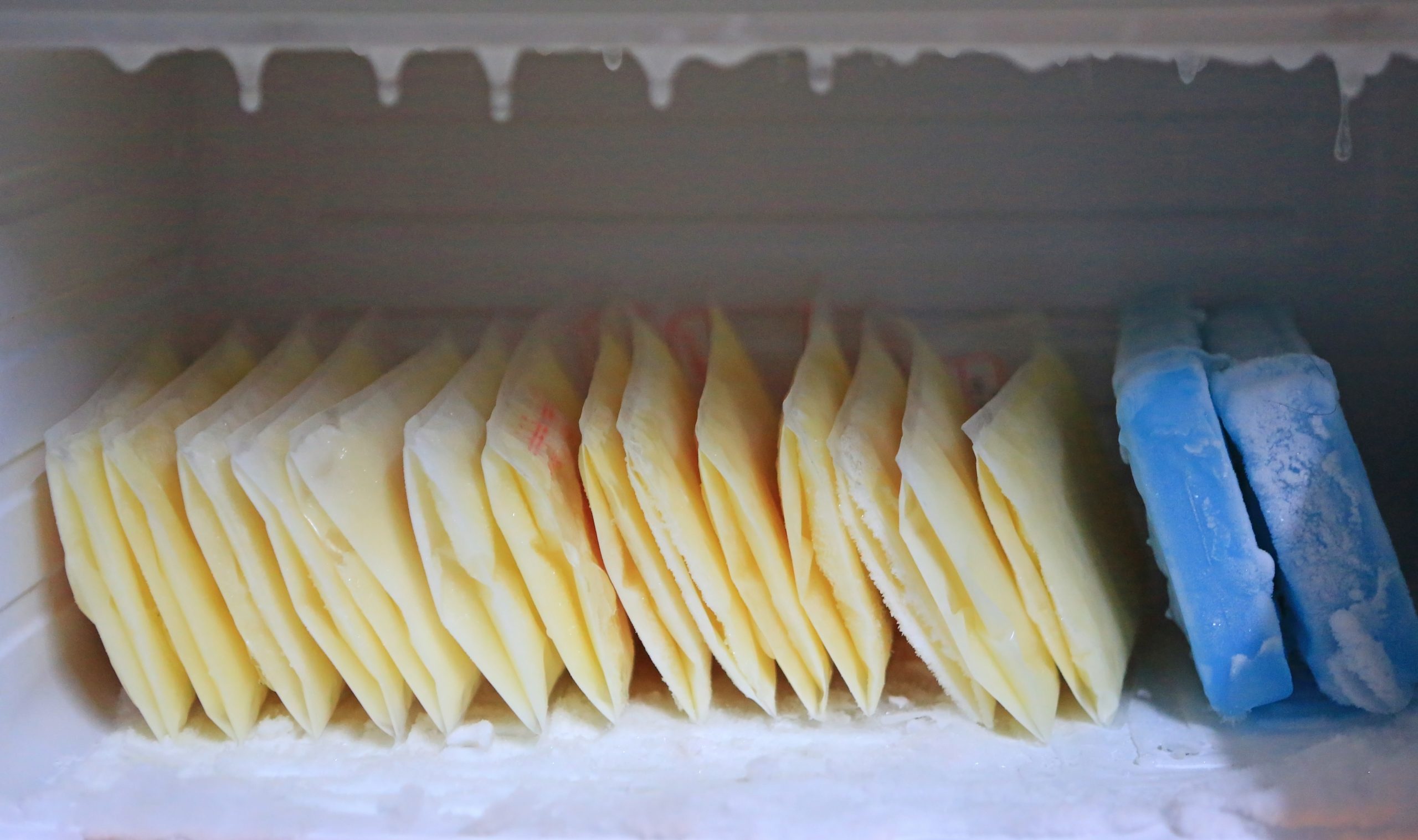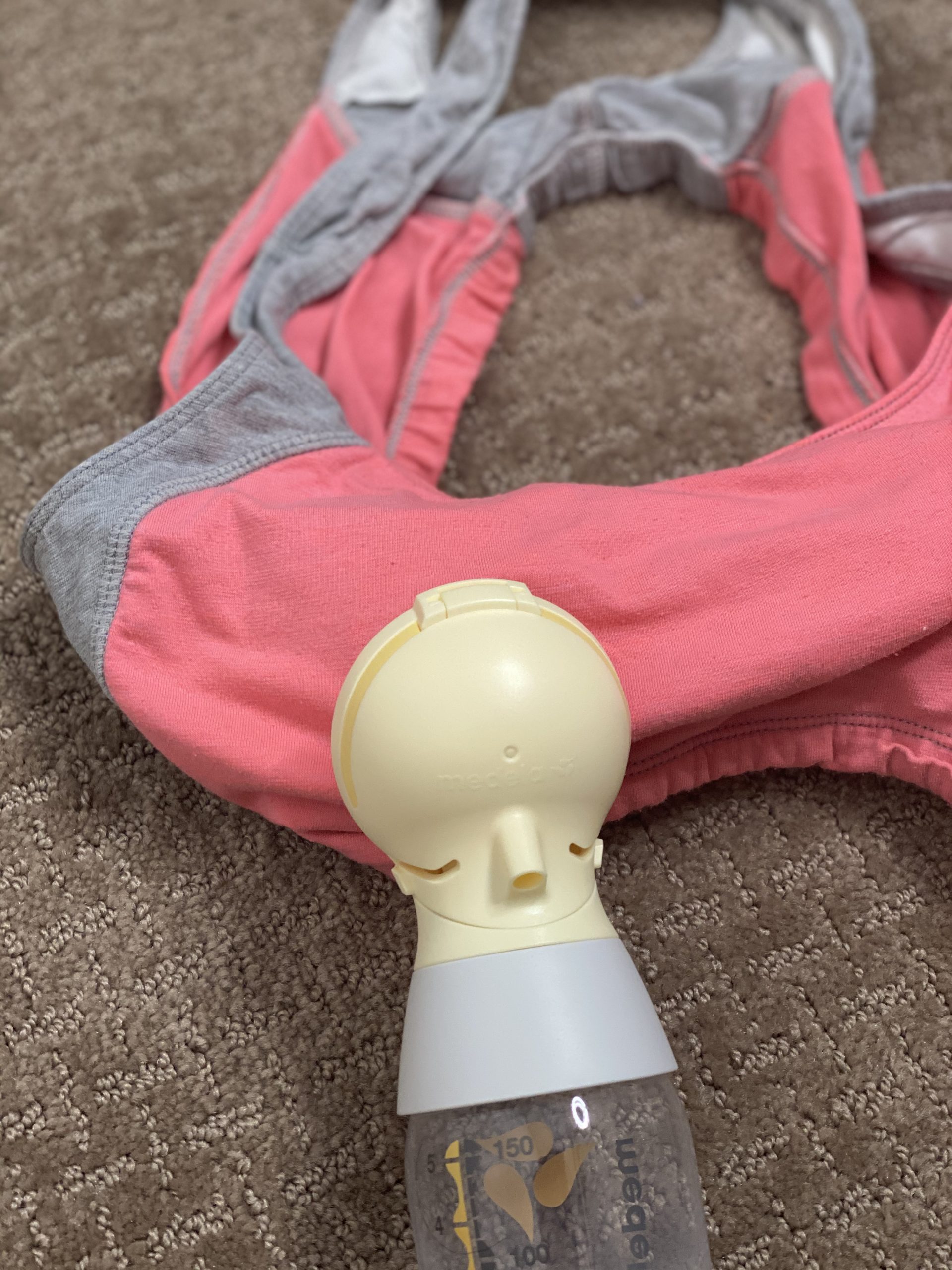Are you wondering about the safety of the use of essential oils while breastfeeding? Have you heard that certain oils might help with milk production, sore nipples, or even your mood? In this post, we’re sharing everything new moms need to know about using essential oils while breastfeeding, including a list of essential oils that are safe and not safe.
Essential oils are a popular remedy – especially for moms. But is it a good idea to use them while breastfeeding? The answer is – yes…sometimes! Essential oil use can be compatible with breastfeeding with certain essential oils and certain precautions are taken. Let’s dive into the best tips for safe use of essential oil while breastfeeding – as well as the great way they can benefit you during your postpartum healing.

For many, essential oils can be the go-to for all ailments, so it makes sense that a new mom might want to use essential oils for various reasons while breastfeeding. Some of these reasons may have to do with breastfeeding specific issues, such as milk production or sore nipples – or for issues that many mothers encounter during the postpartum period, such as mood issues, digestive problems, lack of energy, and sleep disruption.
Many new parents gravitate toward natural remedies over traditional medicine, especially during the delicate postpartum period. Natural doesn’t always mean safe, but many find relief and success with these types of remedies. There are various essential oils that you can use while breastfeeding to help bring relief.
But before using essential oils as a breastfeeding mother.t here are a few things to consider when using essential oils while breastfeeding. Not every oil works in the same way for everyone. The oil that worked for your friend might not do you any good and vice versa. In addition to this, there are certain factors that affect your breastmilk supply, such as genetics and the frequency of emptying your breasts. If you aren’t frequently emptying the breast no oil in the world can help you with breastfeeding. Just like that, the more you empty your breasts, the more your body meets up the demand and produces more milk.
I don’t recommend putting all your trust and hope into the use of essential oils for different breastfeeding ailments or issues – but it might be worth trying! I always err on the side of caution when it comes to babies and breastfeed, so approach essential oils with caution.
In full disclosure, I have a lot of trouble with most essential oils (except for these Kid Roll ons). They make me feel sick, overheated and clammy. So if you’ve never used them before, start slowly just in case you have a weird reaction.
Always consult your health care provider or lactation consultant before trying out something new as well – nothing in this article should be taken as medical advice and just for educational purposes.
- Ways Essential Oils Can Help Breastfeeding Mom
- Essential Oil safety
- Dilution
- Ingestion
- Clean off Breast
- Test
- Wash your hands
- Keep out of reach of baby
- Be aware of any contraindications with medications
- Where to buy essential oils
- Best Essential Oils for Breastfeeding Mothers
- Essential Oils for Sore Nipples
- Good carrier oils
- Essential Oils to Avoid While Breastfeeding
- Peppermint essential oil
- Oregano essential oil
- Clary sage essential oil
- Additional Essential Oils to Avoid:
- How to Use Essential Oils While Breastfeeding
- Things to Keep In Mind
- More Posts You Might Enjoy
Ways Essential Oils Can Help Breastfeeding Mom
There are many common issues that you may encounter after you give birth that essential oils might be able to help. They can be a great option that is a bit more holistic toward healing:
- Sore nipples
- Breast milk productions
- Sore breasts
- Exhaustion and a need for more restful sleep
- Emotional support
- Compromised immune system
- Digestive support
- Energy (citrus oils are especially great for this!)
I won’t go over all the different essential oils that can be used for these purposes, but as you do your own research, you can reference the list in this post to help you figure out if it’s safe while breastfeeding.
Essential Oil safety
Although essential oils are natural, you need to take precauations when using them – especially directly on your skin and around your baby.
Dilution
When you are breastfeeding, you need to get the dilution rate at 1% or less. You can do this by simply adding one drop of essential oil into one tablespoon of a carrier oil and building up to a teaspoon instead if needed. A carrier oil is something like coconut oil or almond milk.
Ingestion
You will get different opinions on this, but I would recommend avoiding ingesting essential oils while breastfeeding.
Clean off Breast
If you put any oils on your breast, make sure that you completely clean them off before you breastfeed, especially if they came in contact with your nipple. For safest practice, use essential oils immediately after nursing to put the longest amount of time between application and when your baby will nurse again.
Test
Test the essential oils that you are using – especially if they are new to your or your baby. Just use a very small amount on your skin or in a diffuser and observe for any adverse effects.
Wash your hands
Make sure to wash your hands after using essential oils to make sure you don’t accidentally get too much on you or your baby – and so they don’t touch your hands and then put their hands in their mouth!
Keep out of reach of baby
This should really go without saying but make sure you keep your essential oils out of reach from your baby!
Be aware of any contraindications with medications
There are some essential oils that may be contraindicated with medications. Just be aware of this to ensure
Where to buy essential oils
There are MANY places to buy essential oils. Doterra Oils and Young Living are probably the most popular brands out there, but I think there are other brands that are just as good (maybe even better) but are easier on the pocket.
I also prefer brands that don’t require you to go through a rep to buy them.
The two brands I have used and feel comfortable recommending are Eden’s Garden and Rocky Mountain oils.
Eden’s Garden is available on Amazon. They are really great quality, affordable, and have great reviews. This is a favorite brand of my sister.
My personal favorite is Rocky Mountain Oils. As I’ve mentioned, I have a really hard time tolerating most essential oils. If I walk into a room where oils are being diffused, I immediately start to sweat and feel nauseated. It’s bad news if I got most on my skin!
However, I got some from Rocky Mountain Oils a few years ago, and I was pleasantly surprised to see that I could tolerate their children roller balls. They are really diluted, but I have no reaction whatsoever, and I’ve seen some great results from them.
If you can tolerate regular oils, their essential oil bottles and blends are great. Make sure to check that a blend or rollerball is compatible with breastfeeding.
Best Essential Oils for Breastfeeding Mothers
There are a lot of essential oils that breastfeeding mothers can use – but I thought I would first share a list of the best essential oils for breastfeeding mothers. As in, these might have some kind of benefit for you while breastfeeding.
Fennel seed essential oil
While fennel seed essential oil is not to be used in pregnancy, it can be used while breastfeeding and many find it works wonders for breastfeeding. It can potentially help to increase your milk supply, but it also can help with the tenderness that often follows nursing.
Simply take a few drops of fennel seed essential oil and mix it with a carrier oil apply topically on your breasts. Make sure to avoid the nipple area, and if it gets on your nipple, make sure to wipe it off before nursing your little one.
You should just use a couple of drops of the diluted mixture sparingly, as some report it affecting their hormones.
Fennel can also cause allergic reactions with some people because of how it can react with vegetables like carrots and celery, so you should use this with caution (source).
Recommendation: Eden’s Garden
Lavender essential oil
Lavender is a fantastic option to use during the postpartum period. Many new moms are exhausted and overwhelmed, usually due to the lack of sleep. This can lead to not nursing as frequently or as long, which can then lead to low milk supply.
Lavender essential oils can help with more restful sleep and to help relax a new mom. This would be a great one to try and diffuse. You could also try massaging it behind your ears or wrists or even directly on your breasts (making sure to avoid your nipples and clean if off later).
There was actually a study that showed that the effect of the lavender oil aroma within the first few hours after giving birth can help improve the physical and mental health of the new mother. This is a great oil for helping with more restful sleep, decreasing stress and anxiety, and may even help with postpartum depression.
I do not recommend using it topically on the breast.
Recommendations: Rocky Mountain Oils Lavender – several options, including a roll on
Basil essential oil:
Basil is considered a galactagogue and some find that basil essential oil can have a positive effect on milk supply. This oil is generally pretty well tolerated. You can mix a couple of drops with a carrier oil and rub directly into the breast. Make sure you avoid your nipple area.
Recommendations: Rocky Mountain Oils Basil
Dill essential oil:
Dill is a very mild essential oil that can be used immediately after birth. It is thought to help increase or support milk supply.
Essential Oils for Sore Nipples
A lot of moms seem to want to use essential oils for sore nipples. Here are a few options – I would definitely recommend mixing mixing these with a carrier oil and only using a small amount. You definitely want to wash your breasts off before allowing your baby to nurse.
- Frankincense (RMO /
- Lavender (RMO /
- Geranium* (RMO
- Roman chamomile (RMO /
- Neroli (RMO /
- Helichrysum* (RMO /
*might be especially helpful for cracked/damaged nipples.
Other Essential Oils Compatible with Breastfeeding:
Here are some more essential oils that you may consider using with breastfeeding. Of course, you should make sure there are no reactions by testing a small area of your body or by difusing a small amount in your room. You should also monitor your baby’s behavior and your milk supply closely with any introduction of a new oil.
I am not listing these because they will aid in breastfeeding in any way (some of them might) – just so you know that you might be able to use them with breastfeeding.
- Bergamot
- Cedarwood
- Cardamom
- Copaiba
- Coariander
- Cypress (RMO /
- Frankincense (RMO /
- Geranium RMO
- Grapefruit
- Jasmine
- Lemon
- Lemongrass
- Lime
- Mandarin
- Marjarom
- Melaleuca
- Neroli
- Orange
- Roman Chamomile
- Rose
- Rosewood
- Sandalward
- Tangerine
- Vetiver
- Ylang Ylang
Stronger oils
These oils can be used while breastfeeding, but they can be rather strong. I would suggest waiting until your baby is older before trying to use any of these essential oils.
Good carrier oils
I have mentioned carrier oils a few times – these are absolutely essential when using essential oils on your body or with your infant. The carrier oil helps to dilute the oil and makes it more suitable for topical use.
There are a variety of carrier oils out there. Make sure you choose one that is pure and not processed at all. Here are a few to consider:
- Coconut oil
- Almond Oil
- Jojoba oil
- Grapeseed Oil
Essential Oils to Avoid While Breastfeeding
While the above-mentioned essential oils are great for breastfeeding, the following should be avoided while breastfeeding.
Peppermint essential oil
Peppermint is commonly used during pregnancy, so it may come as a surprise that you should not continue to use it while breastfeeding.
Peppermint is thought to decrease milk supply. Peppermint in small amounts – such as in a candy, may not be as troublesome. But the oil itself can have negative effects, so it’s best to avoid it altogether.
If you are trying to wean and dry up your milk supply, it might be one that you can introduce at that time to help with that process.
Oregano essential oil
Oregano can have a detrimental effect on your milk supply as well. While eating it in small amounts of the fresh or dried herb in your spaghetti sauce probably won’t cause you issues, oregano oil is the concentrated version of this, therefore, it is quite a bit stronger. Avoid use internally or topically on the breast.
Clary sage essential oil
I have heard mixed opinions on clary sage oil. Some claim it can balance your hormones and increase milk supply. But in the highly regarded book Gentle Babies, the use of Clary Sage while breastfeeding is not recommended. The main reason is that it is thought to decrease milk supply. It is sometimes used in pregnancy to help jumpstart labor, but it’s not one that I would continue to use during the postpartum period.
Additional Essential Oils to Avoid:
Here are a few other essential oils you probably want to avoid using while breastfeeding.
- Blue Cypress
- Carrot Seed
- Cinnamon Bark
- Hyssop
- Idaho Tnasy
- Myrrh
- Nutmeg
- Rosemary
- Wintergreen
How to Use Essential Oils While Breastfeeding
There are many different ways you can use essential oils while breastfeeding. Most often, they are used topically on the breast (avoiding the nipple), behind the ear, on the chest, or on the feet. This will depend on the oil you are using and the purposes behind why you are using them. I do not recommend ingesting them.
I recommend that you try and use right after baby nurses. This will limit the contact that a baby might have to the essential oils. If you’ve applied oils to your breast, make sure that you have
Diffusing essential oils is also a wonderful way to use essential oils while breastfeeding – especially ones like lavender. I would start with just a couple drops of essential oils in your diffuser.
Rocky Mountain Oils has some great diffusers, but Amazon also has a lot of options as well:
Making or buying roll-ons can be a great way to use essential oils as well. This can be easier to use, especially as a busy mama. There are lots of essential oil recipes out there, but I like to buy the ones from Rocky Mountain Oils – particularly the ones that were created for children. These are about the only essential oils I can tolerate.
Be aware that babies can be highly sensitive to different items, even when they are natural. Monitor your infant for any type of reaction to you diffusing or using essential oils while around them.
Things to Keep In Mind
When using essential oils, there are important things to keep in mind – especially when you are using them around your infant or for the first time.
Skin irritation
Skin irritation is not entirely uncommon when it comes to essential oils. Even if you’ve used them before, the postpartum period can really do a number on a person, so something that you didn’t have issues with before may causes issues now.
Always test on a small area of your body!
Oils are different than herbs
I already mentioned this, but oils are different than herbs. Oils are very concentrated, so the effects of them are going to be a lot more intense with just a couple of drops as opposed to consuming a 1/2 tsp of dried herbs.
Purity matters
There aren’t any real safety regulations when it comes to essential oils, which is why you need to pay attention closely to how they were made, any byproducts that have been added, and reviews. Purity matters!
Age of Baby
I am generally more cautious about recommending use of essential oils with younger babies and when a mother’s milk supply may be more volatile, such as when her baby has just arrived.
You definitely want to start slowly and with very small amounts in the beginning. As your see how your body reacts and as your baby gets older, it can be appropriate to add in more or different essential oils.
People Respond Differently
Everyone responds differently to essential oils. Just be careful with their use, especially if you are new to them.
As always, please work with a trusted medical provider before using essential oils. This article is meant for educational purposes only!
Be sure to share your experience in the comments!

